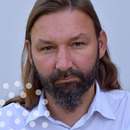Contact
Work group
Religion and Secularity (Senior Fellow summer term 2023)
Zdeněk R. Nešpor is a historian and a sociologist, professor at the Charles University Prague and a senior researcher at the Czech Academy of Sciences’ Institute of Sociology. He is a regular fellow of the Learned Society of the Czech Republic since 2022. His research focuses on sociology of religion and culture, social anthropology and Protestant church history, especially on Czech religion in the European context since the 18th century to the present. In the summer term 2023, he is a senior fellow at the KFG in Munich, where he will work on a research project titled The Later Years of the Czechoslovak (Hussite) Church: between Universalism and Particularism.
Research Project
The Later Years of the Czechoslovak (Hussite) Church: between Universalism and Particularism
In the 1960s, the Second Vatican Council did not affect the situation of the Roman Catholic Church alone. The Czechoslovak Church, the second-largest church in Czechoslovakia, found itself in a paradoxical situation, because it had been founded fifty years earlier by the departure of modernists and nationalists from the Roman Catholic Church and, unlike other "national Catholic" churches, it had a wide social impact with up to 1 million believers. After Vatican II, the Catholic Church itself sided with most of what had once caused the departure of the reformists and inspired the creation of the Czechoslovak Church. Therefore, in the late 1960s and early 1970s, the reformists’ followers asked themselves if they should reunite with the Catholic Church.”. This, of course, did not happen. For ideological, but also for pragmatic and personal reasons (and because of the interests of the Communist state), particularism prevailed over universalism, and the Czechoslovak Church has called itself the Czechoslovak Hussite Church since 1971. The consequences of this nationalistic and particularistic decision manifested themselves significantly in the period after the fall of the communist regime and have affected the life of this church, and the Czech religious scene as a whole, up to the present day.
Famous Last Words
"Staying in Munich, I had an excellent opportunity to work both on my own research project and share the knowledge with other fellows. Formally and informally alike, as the great advantage of the programme lies in deep connection of various researchers, topics, methods and means of communications. Like the very city: hardworking and relaxing at the same time."
Zdeněk R. Nešpor | The Later Years of the Czechoslovak (Hussite) Church: between Universalism and Particularism as video and podcast on Wissenschaftsportal L.I.S.A.


